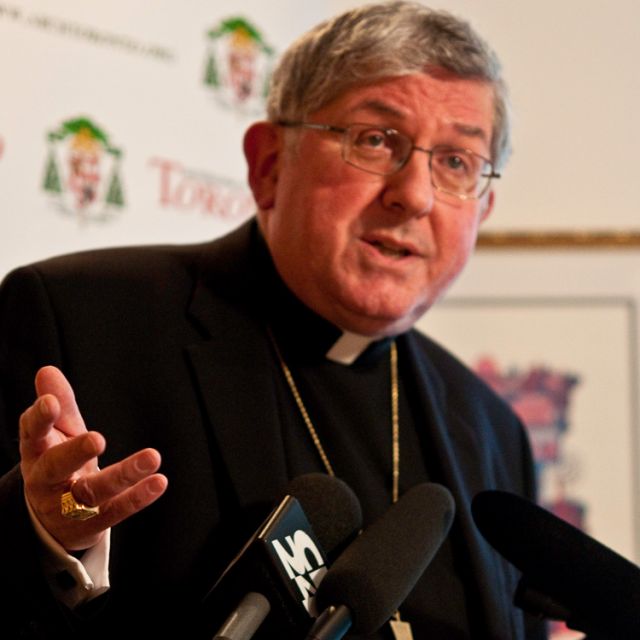“Recognizing that the Accepting Schools Act is now the law, Catholic partners will seek, as we have always done, in a way that is in accord with our faith, to foster safe and welcoming school communities,” said Collins. “Bullying, in any form, is unacceptable. At the core of our Catholic Christian beliefs is the command to welcome every person with love and respect.”
Collins notes that the Assembly of Catholic Bishops of Ontario “expressed serious concerns regarding certain aspects of this legislation,” along with some parents, teachers and education advocates.
A week earlier, suggesting the legislation infringed on religious freedom, Collins said he found it odd that students would be given the right to override the wishes of school trustees and principals. He called for anti-bullying legislation that recognized the concerns of all students and allowed for solutions to bullying that respected the rights of Catholic education.
The Ontario Catholic School Trustees’ Association is recommending principals comply with the legislation.
“We still have our Respecting Difference guidelines out there and they’re going to be used,” said OCSTA chair Marino Gazzola. “If anywhere there’s a contradiction between our Respecting Difference document and the legislation, Bill-13 is going to take precedence.”
Gazzola couldn’t say where such conflict might arise.
OCSTA won’t be taking the government to court over the new law “at this time,” Gazzola said.
“We’re prepared to move on with this. We’re not moving backwards,” he said.
The OCSTA is not worried about newspaper columns and editorials that question the $7 billion per year the province directs toward Catholic education, calling for a single, secular system.
“The government has said this is not about defunding Catholic schools. We’re going to take the government at their word.”
An internal OCSTA memo counsels against a legal challenge, but casts doubt on whether the government really is committed to maintaining a religiously based separate school system.
“There are enough indicators to show that this government’s support for Catholic schools is questionable,” said OCSTA executive director Kevin Kobus in a memo obtained by a Toronto daily.
The new law does not override the authority principals should exercise over clubs, even if they are named gay-straight alliances, said Kobus.
“This does not, however, remove the right of a principal to ensure the appropriateness of materials used in the school,” Kobus writes.
Kobus notes that the OCSTA has not won the public relations war over GSAs.
Gazzola said Catholic trustees and educators are not hung up on the word gay.
“There’s no issue with the words gay-straight alliance, and if that’s what the students want to call it they’re going to call it that in our schools,” he said.
Catholic schools and Catholic teaching are not opposed to students in an after-school club talking about sexual orientation or gender issues, said Toronto Catholic trustee Jo-Ann Davis.
“We will need to be ensuring that, depending on what the topic is, that the Catholic teaching on such topics is shared with students,” said Davis, whose ward includes Toronto’s gay village.
In Mississauga, where Catholic students first challenged the right of their principal and the school board to ban GSAs, Dufferin-Peel Catholic District School Board chair Mario Pascucci is disappointed that the new law will undermine his board’s existing Open Arms and Respecting Difference clubs.
“From the perspective of what the students want and the protection of the students, that’s what we are doing and we are doing a good job at that,” he said.
In the end, Catholic schools will find a way to follow the law without compromising Catholic values, said Pascucci.
Catholic boards’ hands tied by Bill-13
By Michael Swan, The Catholic RegisterTORONTO - Catholic schools will remain welcoming places for all students in full accord with the Accepting Schools Act and Catholic teaching and tradition, said Cardinal Thomas Collins in a statement released June 5 after Bill-13 passed third reading to become law.
Passage of the bill means Catholic schools must allow gay-straight alliance clubs if requested by students.
Please support The Catholic Register
Unlike many media companies, The Catholic Register has never charged readers for access to the news and information on our website. We want to keep our award-winning journalism as widely available as possible. But we need your help.
For more than 125 years, The Register has been a trusted source of faith-based journalism. By making even a small donation you help ensure our future as an important voice in the Catholic Church. If you support the mission of Catholic journalism, please donate today. Thank you.
DONATE

